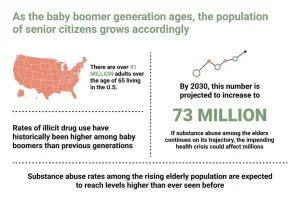
But it can actually end up robbing you of a good night’s rest — or worse, could cause some challenging sleep problems. Common medications that why does alcohol make you sweat at night can cause you to break out into a sweat at night include antidepressants, pain relievers, diabetes medications, and steroids. Incorporate good sleep habits like keeping a consistent sleep schedule and creating a relaxing bedtime routine.
- In order to answer this question, we must understand the impact of alcohol consumption on our body and brain.
- You’ll meet millions of fellow Reframers in our 24/7 Forum chat and daily Zoom check-in meetings.
- You can now get weekly coaching support, anti-craving medications, handy digital tools, and more—all from an app on your smartphone.
- Night sweats can be an early symptom of these conditions, so it’s essential to be vigilant about any changes in your body.
- This condition, known as alcohol intolerance, may be due to a lack of aldehyde dehydrogenase, an enzyme necessary to break down alcohol.
- Most of the alcohol you consume is broken down into byproducts through metabolism within your body.
- Incorporating a balanced diet plays a significant role in your overall health.
Alcohol withdrawal and night sweats
- This antioxidant, found in grape skins, may prevent inflammation and clogged arteries by reducing the oxidation of harmful LDL cholesterol.
- During the acute withdrawal stage, which generally lasts five to seven days, night sweats may be a common occurrence.
- Alcohol intake can suppress your immune system, increasing the risk of contracting infections like tuberculosis or brucellosis.
- “Over time, this repeated damage can result in cirrhosis, where the liver becomes so scarred that it loses functionality,” she explains.
- (1) Individuals experiencing alcohol night sweats may wake up feeling cold due to the body’s production of sweat in response to alcohol consumption.
However, if you start to notice symptoms such as excessive sweating after drinking alcohol, it might be time examine your habits. Too much alcohol intake can increase the body temperature, leading to vasodilation and sweating, which are the body’s means of maintaining optimal temperature. When the core temperature rises, the blood vessels enlarge to allow more blood flow to the surface of the body, thus releasing heat. This also triggers the sweat glands to produce sweat which further decreases body temperature. Some people, however, cannot tolerate even small amounts of alcohol.
What Happens to Your Body When You Drink Alcohol Regularly

If you experience frequent night sweats due to drinking, you may have a drinking problem. Night sweats are one of the most common symptoms during alcohol withdrawal. They often start within 6-12 hours after your last drink and can last up to 4-5 days or longer. The intensity peaks around hours as your body rids itself of the toxins.
Moderate Alcohol Withdrawal Symptoms

Chronic alcohol consumption can also lead to a deficiency in vitamin B1 (thiamine), potentially resulting in serious neurological disorders like Wernicke-Korsakoff syndrome, she adds. To minimize the risk of experiencing night sweats caused by alcohol, it is crucial to consume alcohol responsibly and in moderation. This means limiting your alcohol intake and avoiding binge drinking sessions.

Lifestyle Quizzes
- Pregnancy and menstrual cycles may also influence your body’s core temperature at night.
- Night sweats can generally be described as unusual or excessive sweating during the night hours.
- The negative impact of alcoholic night sweats on your sleep can also extend to your relationships and professional life.
- However, maintaining a workout regime and sweating out toxins will make the alcohol abstinence easier by expelling the horrid symptoms of depression, anxiety, and irritability.
Alcohol intolerance and alcohol withdrawal can also lead to symptoms such as night sweats and facial redness. Because alcohol intolerance is a genetic condition, there’s currently no cure for it. The best way to relieve the symptoms of alcohol intolerance is to limit or eliminate alcohol consumption. Alcohol affects the central nervous system, the circulatory system, and virtually every part of your body. Drinking can increase your heart rate and widen blood vessels in your skin.
- Ria Health offers several FDA-approved medications for alcohol use disorder.
- But if the above adjustments don’t help and your night sweats seem to be getting worse or more frequent, it’s time to see your provider, especially if it’s affecting your ability to sleep.
- Alcohol can cause the heart rate to quicken or the heart rhythm to become irregular.
- An important sign of AUD is drinking in dangerous situations and experiencing symptoms of alcohol withdrawal when not consuming alcohol.
- Furthermore, night sweats can also be influenced by factors such as the use of certain medications (e.g. steroids, antidepressants), menopause, and other health conditions.